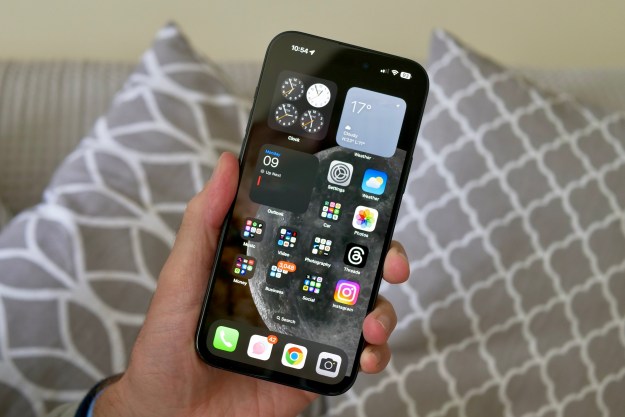
The information recorded by Apple is not actually users’ exact location; instead, the company tracks which cell tower each iOS device uses to connect to a wireless network.
Apple has never publicized any information about the tracking function. And the closest it’s ever come to acknowledging the geolocation monitoring function was during questioning from Congress last July about its privacy policy and location-based services. In a letter (PDF) to Congressman Edward Markey (D-MA) and Rep. Joe Barton (R-TX), Apple said that it “intermittently” collected “cell tower and Wi-Fi access point information,” which is “transmitted to Apple” every 12 hours.
According to a company called Katana Forensics, however, the unencrypted data is also used by law enforcement for their own purposes.
“The information on the phone is useful in a forensics context,” said Alex Levinson of Katana, who spoke with CNet. The company’s iOS data extracting software, Lantern 2, is often used by “small-town local police all the way up to state and federal police, different agencies in the government that have forensics units.”
While the collection of cell phone data by law enforcement remains a controversial topic, the practice has so far been upheld as constitutional by the courts.
Apple’s iOS isn’t the only mobile OS that collects user location information. Devices running Google’s market-leading Android OS also “keep a record of the locations and unique IDs of the last 50 mobile masts that it has communicated with, and the last 200 Wi-Fi networks that it has ‘seen,'” according to the Guardian.
Location-based services have become a burgeoning industry that is currently worth $2.9 billion, and everyone seems to be getting in on the action. So, apparently, if you want to keep Apple, Google or the fuzz off your back, it might be best to go with a landline.
There may be a glimmer of hope for the little man in this, however. Once again, Rep. Edward Markey has come to the rescue, asking Apple CEO Steve Jobs in a letter sent this week to explain his company’s privacy-encroaching ways.
“I am concerned about this report and the consequences of this feature for individuals’ privacy,” Rep. Markey wrote in the letter, followed by a series of questions about the location data file and why, exactly, it exists.
Editors' Recommendations
- You’ll soon be able to control your iPhone and iPad with your eyes
- An Apple insider just revealed how iOS 18’s AI features will work
- Here’s how Apple could change your iPhone forever
- The 10 best photo editing apps for Android and iOS in 2024
- This one thing could make iOS 18 the best iPhone update in years


